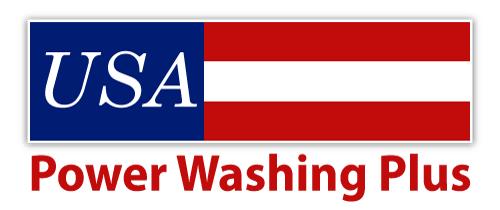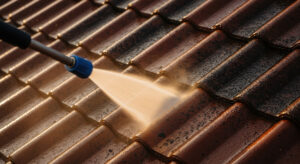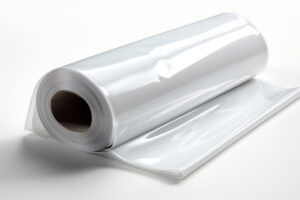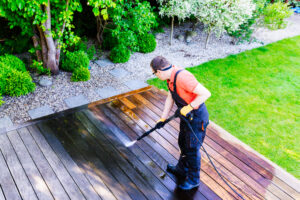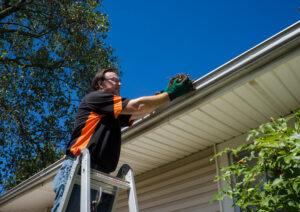Living in New Jersey’s coastal areas offers picturesque vistas and a distinct way life, but it also brings significant challenges for property owners.
The mix of salty air, persistent humidity, and severe weather conditions can be particularly harsh on homes.
Power washing proves to be an essential upkeep method in this setting, beyond just keeping things looking nice.
This piece discusses how consistent power washing can shield your New Jersey residence from coastal weather assaults.
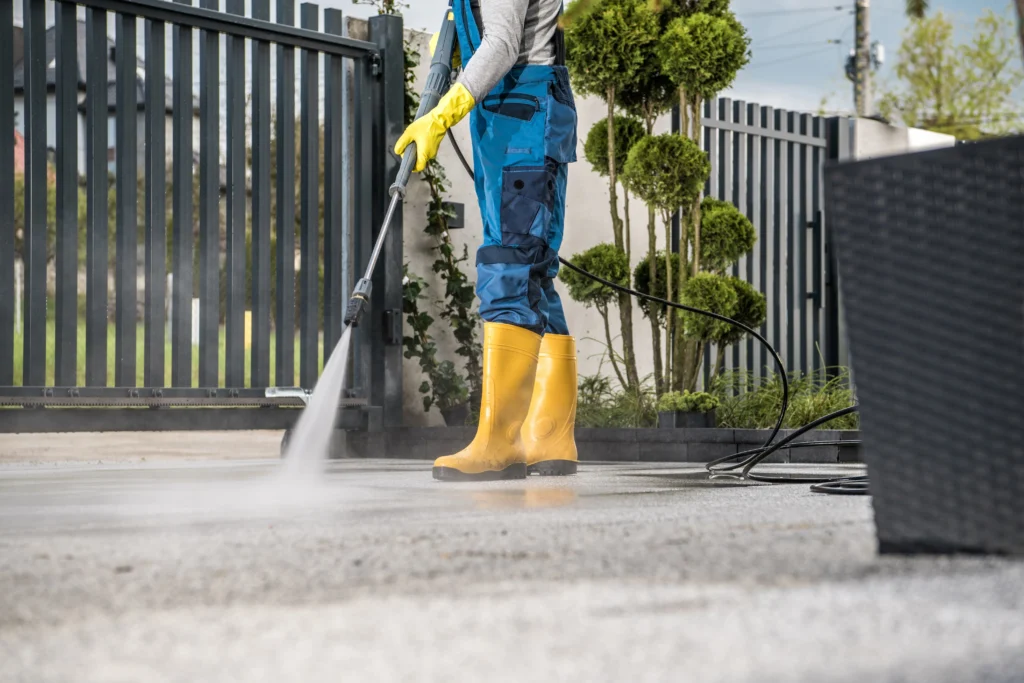
Power Washing Maintenance
Understanding Coastal Climate Challenges
To appreciate power washing’s effectiveness, one must comprehend the specific issues New Jersey’s coastal climate presents:
- Salt Air Damage: Salt-laden air speeds up the corrosion of metal surfaces and wears down different building components.
- High Humidity: Constant moisture fosters mold, mildew, and algae growth.
- Sand and Grit: Wind-driven sand acts like sandpaper, slowly eroding exterior surfaces.
- Temperature Swings: The fluctuation from hot summers to cold winters causes materials to expand and contract, leading to cracks and deterioration.
- Intense Sunlight: Long exposure to sun rays can fade and damage exterior finishes.
These conditions create a uniquely tough environment for maintaining the durability of coastal homes.
The Power Washing Solution
When done correctly and routinely, power washing can address many issues linked to coastal weather. Here’s how this process protects your New Jersey residence:
Eliminating Salt Buildup
Salt build-up is a major threat to homes by the coast. Power washing efficiently removes salt from:
- Outer walls
- Windows and frames
- Decks and patios
- Roof materials
By routinely clearing these layers, power washing stops salt from seeping in and corroding building materials, which is crucial for homes with metal parts like gutters.
Stopping Mold and Mildew
The high humidity of New Jersey’s coast is ideal for mold and mildew, which can harm your home’s look and cause health or structural issues if left unchecked. Power washing:
- Gets rid of existing mold and mildew
- Cleans porous areas where spores thrive
- Makes surfaces less inviting for new growth
Regular power washing, particularly in shady or moist spots, greatly lowers mold and mildew risks.
Safeguarding Exterior Coatings
The mix of salt, sand, and UV light rapidly damages paints and finishes. Power washing helps by:
- Removing particles that wear surfaces down
- Cleaning off contaminants affecting finishes
- Prepping surfaces for new protective coats
By keeping exteriors clean, power washing extends the life of these protective layers, reducing how often you need to repaint or restain.
Maintaining Structural Strength
Dirt, grime, and organic growth over time trap moisture, compromising your home’s surfaces. This can lead to:
- Wood decay in siding and trims
- Concrete damage
- Aging of roofing materials
Power washing eliminates these buildups, allowing surfaces to dry properly and retain their structural strength.
Boosting Energy Efficiency
Believe it or not, a clean exterior can enhance your home’s energy efficiency. Here’s how:
- Clean windows let in more natural light, cutting down on artificial lighting needs
- Removing grime helps siding reflect heat, keeping your house cooler during summer
- Clean solar panels (if present) work more efficiently
Regular power washing is a step towards saving on energy costs, especially in New Jersey’s hot, humid months.
Best Practices for Coastal Power Washing
To effectively use power washing in coastal areas, consider the following best practices:
- Frequency:
- Homes near the coast should schedule power washing at least twice a year.
- Properties further inland can benefit from annual washing.
- Adjust based on local conditions and exposure.
- Technique:
- Choose the right pressure settings to avoid surface damage.
- Use gentle washing methods for sensitive areas.
- Employ eco-friendly, marine-safe cleaning agents.
- Timing:
- Spring cleaning washes away winter residue, prepping your home for summer.
- Fall washing clears summer buildup, getting surfaces ready for winter.
Professional versus DIY
While some prefer to DIY power washing, professional services provide several coastal-specific advantages:
- Expertise in handling coastal contaminants
- Access to commercial-grade equipment for better cleaning
- Knowledge of suitable cleaning solutions for different materials
- Techniques to avoid damage
Beyond Power Washing: Holistic Protection
While power washing is vital, it should be part of a broader maintenance plan:
- Regular Inspections: Check your home’s exterior thoroughly each quarter.
- Timely Repairs: Fix any damage quickly to prevent bigger issues.
- Protective Layers: Maintain necessary sealants or paints.
- Landscaping Choices: Use salt-resistant plants and ensure good drainage.
- Ventilation: Keep attic and crawl spaces well-ventilated to control moisture.
Power washing is a foundational defense against the severe effects of New Jersey’s coastal weather. By routinely removing salt, stopping organic growth, preserving finishes, and supporting energy efficiency, this upkeep method plays a key role in protecting and valuing coastal residences.
For homeowners in New Jersey, especially those by the sea, incorporating regular professional power washing into their maintenance routines isn’t just about looks—it’s vital to safeguarding their investment against coastal challenges. As the saying goes, “an ounce of prevention is worth a pound of cure.” In coastal home care, power washing offers that essential preventive care, ensuring your New Jersey home remains a safe, attractive, and long-lasting refuge against the elements for many years.
